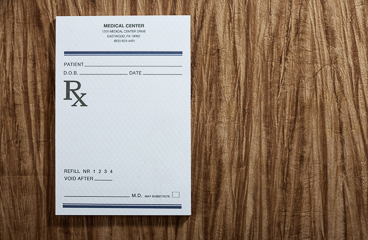Non-Insulin Medicines for Type 2 Diabetes: Care Instructions

Overview
There are different types of non-insulin medicines for diabetes. Each works in a different way. But they all help you control your blood sugar. Some types help your body make insulin to lower your blood sugar. Others lower how much insulin your body needs. Some can slow how quickly your body digests sugars. And some can remove extra glucose through your urine.
You may need to take more than one medicine for diabetes. Two or more medicines may work better to lower your blood sugar level than just one does.
- Metformin. This lowers how much glucose your liver makes. And it helps you respond better to insulin. It also lowers the amount of stored sugar that your liver releases when you are not eating.
- Sulfonylureas. These help your body release more insulin. Some work for many hours. They can cause low blood sugar if you don't eat as you planned. An example is gliclazide.
- Thiazolidinediones. These reduce the amount of blood glucose. They also help you respond better to insulin. An example is pioglitazone.
- SGLT2 inhibitors. These help to remove extra glucose through your urine. They may also help some people lose weight. An example is ertugliflozin.
- DPP-4 inhibitors. These help your body raise the level of insulin after you eat. They also help your body make less of a hormone that raises blood sugar. An example is alogliptin.
- GLP-1 receptor agonists. These help your body make a protein that can raise your insulin level and make you less hungry. They're given as shots or pills. An example is semaglutide.
- Meglitinides. These help your body release insulin. They also help slow how your body digests sugars. So they can keep your blood sugar from rising too fast after you eat. An example is repaglinide.
- Alpha-glucosidase inhibitors. These keep starches from breaking down. This means that they lower the amount of glucose absorbed when you eat. They don't help your body make more insulin. So they will not cause low blood sugar unless you use them with other medicines for diabetes. An example is acarbose.
Follow-up care is a key part of your treatment and safety. Be sure to make and go to all appointments, and call your doctor or nurse advice line (811 in most provinces and territories) if you are having problems. It's also a good idea to know your test results and keep a list of the medicines you take.
How can you care for yourself at home?
- Eat a healthy diet. Get some exercise each day. This may help you to reduce how much medicine you need.
- Do not take other prescription or over-the-counter medicines, vitamins, herbal products, or supplements without talking to your doctor first. Some medicines for type 2 diabetes can cause problems with other medicines or supplements.
- Tell your doctor if you plan to get pregnant. Some of these drugs are not safe for pregnant women.
- Be safe with medicines. Take your medicines exactly as prescribed. Meglitinides and sulfonylureas can cause your blood sugar to drop very low. Call your doctor or nurse advice line if you think you are having a problem with your medicine.
- Check your blood sugar often. You can use a glucose monitor. Keeping track can help you know how certain foods, activities, and medicines affect your blood sugar. And it can help you keep your blood sugar from getting so low that it's not safe.
When should you call for help?
Call 911 anytime you think you may need emergency care. For example, call if:
- You passed out (lost consciousness).
- You are confused or cannot think clearly.
- Your blood sugar is very high or very low.
Watch closely for changes in your health, and be sure to contact your doctor or nurse advice line if:
- Your blood sugar stays outside the level your doctor set for you.
- You have any problems.
Where can you learn more?
Go to https://www.healthwise.net/patientEd
Enter H153 in the search box to learn more about "Non-Insulin Medicines for Type 2 Diabetes: Care Instructions".
Current as of: April 30, 2024
